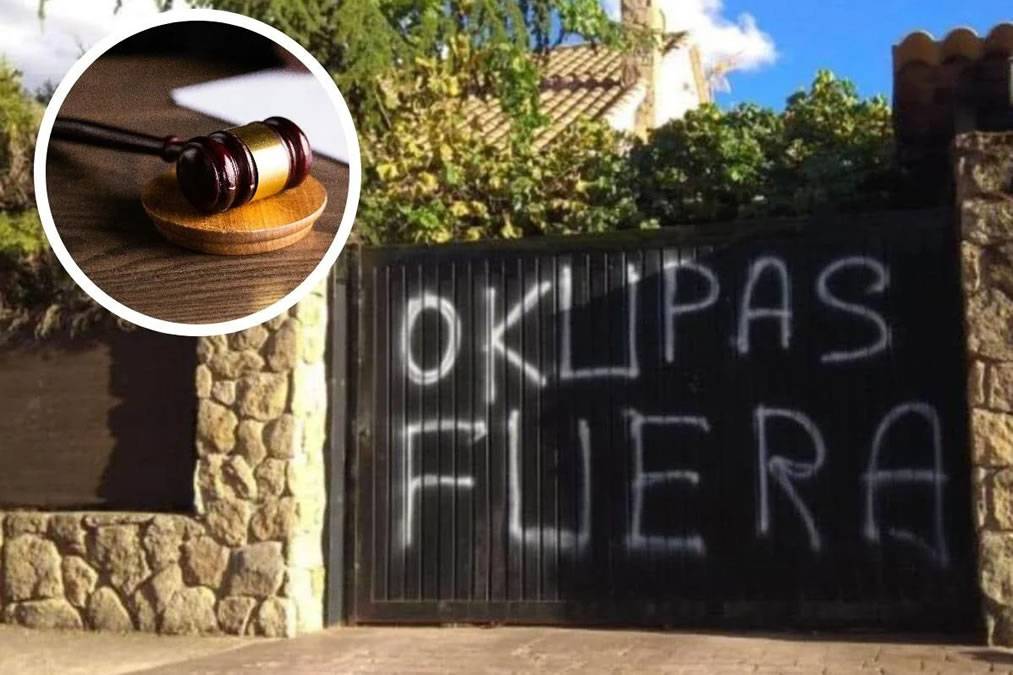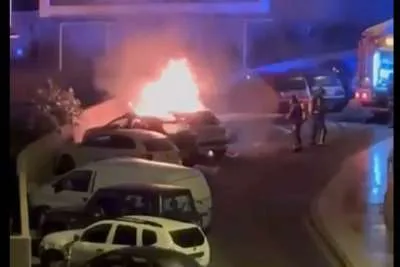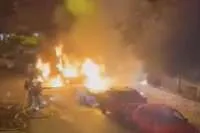New law passed for quick eviction of squatters in two weeks
- 05-02-2025
- National
- Canarian Weekly
- Photo Credit: ABC
The Congress of Deputies approved a crucial amendment to the Criminal Procedure Act on 14th November 2024, which entails significant changes for victims of squatting in Spain, including the Canary Islands.
This change introduces the possibility that cases of home invasion and usurpation of housing can be processed as criminal offences, under a fast-track trial procedure. This means that evictions of squatters can be carried out in just two weeks.
This reform is now coming into force following the omnibus agreement between the government and Junts, and will speed up evictions in cases where owners suffer illegal occupation of their homes in certain circumstances.
In the last five years, almost 91,000 complaints have been filed for illegal occupation of homes, making this problem one of the main concerns of Spanish society. The new legislation will allow cases to be resolved quickly through fast-track trials, something that not only benefits the owners, but also increases the effectiveness of the judicial system.
Express eviction against squatters
Following the reform of the Criminal Procedure Act, illegal occupation of homes, both in cases of breaking and entering and squatting, will be considered a criminal offence, which will allow these cases to be dealt with under the procedure of fast-track trials.
This modification aims to drastically reduce eviction periods, which can currently exceed two years, allowing the process to be resolved in just 15 days. This change aims to streamline the judicial system and provide a more effective response to homeowners who are affected by squatting.
The express eviction procedure, which was already in force, will be extended under this new legal framework. Currently, owners can file an express eviction suit in the corresponding court of first instance, so that, after a quick trial, the court determines whether the occupants have the right to remain in the property.
If the squatters do not present a valid justification, an eviction order is issued, setting the date for immediate eviction. The new regulations establish that cases of illegal occupation will be processed more quickly, which means that the time to recover an occupied property will be considerably reduced.
The express eviction process will work in situations of home invasion, where squatters enter a property without the owner's consent, and in cases of home invasion, where an empty property is occupied without authorisation. For cases where the owner can prove their legitimate right to the property, the judicial process will be expedited, allowing courts to issue quicker rulings.
The main objective of the regulatory change is to reduce eviction times and make it easier for squatters to be evicted more efficiently, which will improve legal certainty and protect the rights of property owners. As the new legislation comes into force, cases of squatting are expected to decrease, as the speed of the judicial process will deter potential squatters and contribute to the restoration of order in many communities.
'Inquiocupation'
However, it is important to note that this reform only affects cases of illegal occupation that are considered flagrant crimes, such as breaking and entering and squatting in unoccupied homes.
On the other hand, cases of occupation carried out by tenants with a rental contract who do not leave the property after the contract expires will continue to be dealt with under the usual judicial procedure, without the application of fast-track trials.
" Inquiokupación " is a phenomenon related to the illegal occupation of homes, although it has a peculiarity: it does not involve the occupation of empty or uninhabited properties, but rather those in which tenants with a rental contract already resided. In this case, the squatters do not enter by force, but remain in the property after the lease contract has expired and refuse to leave the property.
This type of illegal occupation occurs when a tenant who no longer has legal rights to the property refuses to hand it over to its owner at the end of the contract, which becomes a form of usurpation . Although this action is not considered a flagrant crime like breaking and entering, it is still a serious problem for owners, since the recovery of the property can be a long and complicated process, which requires judicial intervention.
This is one of the most problematic variants of squatting, as it involves people who initially had a legal agreement with the owner, but who now refuse to fulfil their obligations and stay in the place without paying rent or respecting the conditions of the contract.
Other articles that may interest you...
Trending
Most Read Articles
Featured Videos
TributoFest: Michael Buble promo 14.02.2026
- 30-01-2026
TEAs 2025 Highlights
- 17-11-2025



























































